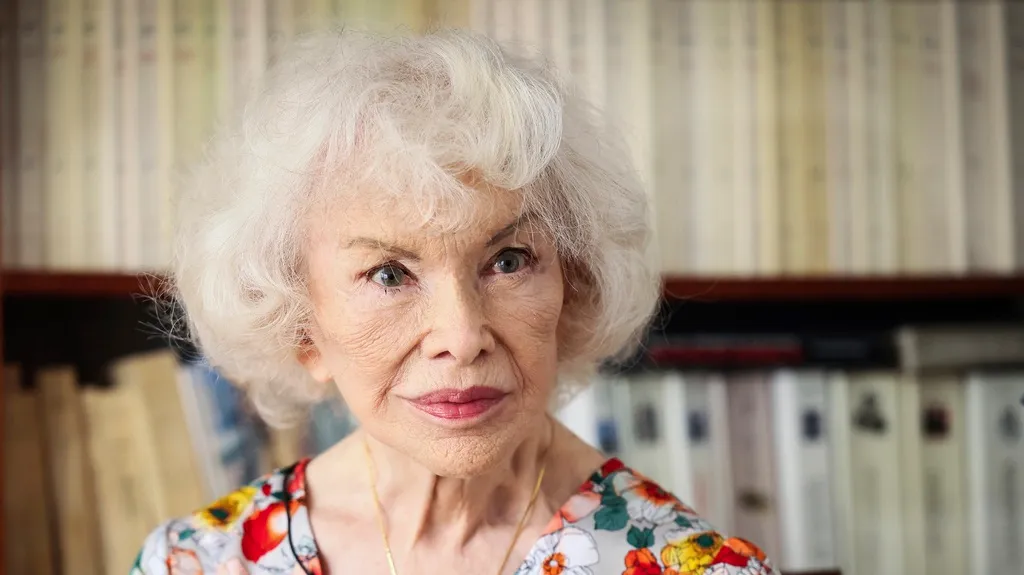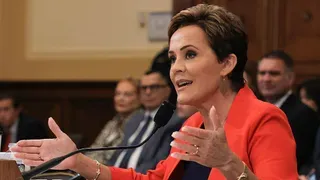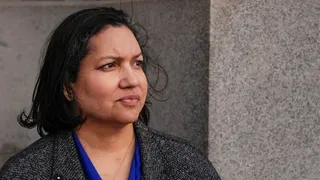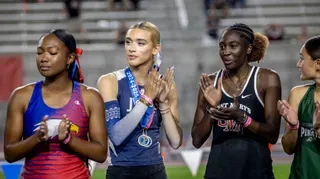September 3, 2013
Mom of 'Rainbow' Son Comes Out in New Book
Jason St. Amand READ TIME: 5 MIN.
For Lori Duron, parenting her younger son C.J. is etched in time as B.B. and A.B. - before Barbie and after Barbie.
The 6�-year-old discovered the doll at the back of his mother's closet about four years ago, and she's barely left his clutches since.
In a new book "Raising My Rainbow," the Orange County, Calif., mom describes C.J. as - in a word - fabulous as he lives life largely in pink, playing with girl toys, dressing in girl clothes and worshipping the Disney princesses.
If you want more words, there's "gender nonconforming, gender creative, gender fluid, gender independent, gender variant, has gender identity disorder, or whatever you prefer to call it."
A world of nagging fear and anxiety about raising a boy who wants to be treated like a girl prompted Duron to begin an anonymous blog, RaisingMyRainbow.com, documenting their family's adventures. More than a million readers later, the book from Broadway Books is her humorous coming out.
A conversation with Lori Duron:
AP: How's C.J. doing now?
Duron: He's getting ready to start first grade, so he's great. He's fun. He's a great kid. He's healthy and happy. C.J. could be transgender. We've always been open to that possibility, but right now he's entering first grade as a boy and he likes being a boy. He's already picked out his rainbow-colored, leopard-print backpack and his pink lunch box.
AP: You've tapped into a burgeoning parenting "movement," of sorts, meaning those parents who are allowing their children to be gender creative.
Duron: It has been great that we've met other families. That's part of the reason why I started the blog, because we were feeling so alone and we were feeling like we were the only family going through this and we knew that that couldn't be the case.
This is also something you don't necessarily see when you're out and about because some kids are in hiding, and sometimes their parents don't allow them to be gender creative out in public or even in the house.
I've made amazing friends who are raising kind of this next generation of LGBTQ (lesbian, gay, bisexual, transgender, questioning) youth and we do consider ourselves to be in that community. We may not always be. There's still the possibility that C.J. could identify as straight.
AP: What are some of the fears as a "spokesparent," with the blog and now the book?
Duron: I never anticipated that. I thought I would start this blog and I would meet other families like ours. I never, ever intended to show my face, let people know my name. But because of the emails and the support that I've received, I know it's so important that someone needs to speak out for families like ours. I'll be that person who speaks out. I get some hate mail and I don't like getting hate mail, so there are people who definitely disagree. It would be much easier not to deal with that but it's too important for kids and families like ours. I can't hide.
AP: You're not a fan of Dr. Phil. Have you ever met him?
Duron: I've never met him, no. He said some things that are hurtful, that could be really hurtful to kids like C.J. if parents took his advice to heart. He said if your son is playing with girl toys redirect him toward boy toys. Redirect those feminine behaviors, to limit play things to those in line with their gender. I just think that's so dangerous.
AP: You grew up with a gay brother and brought that experience to the table when C.J.'s preferences for "girl stuff" surfaced.
Duron: I definitely saw my parents make some mistakes. It was a different time and a different place. We lived in a not-so-great area of Los Angeles and we grew up in the '70s and the '80s into the '90s. We come from a very religious home, where homosexuality was considered a sin. I watched my brother struggle and I watched my parents and I promised that I wouldn't make those same mistakes with my kids should they be LGBTQ.
We wouldn't call C.J. a sissy. My brother was called a sissy at home. My brother was encouraged to "man up." We don't try to get C.J. to man up. My brother was not always given the toys that he wanted for Christmas and birthdays. My brother grew up feeling shame and some of it was in direct relation to actions of my parents and some of it was self-inflicted because he knew he should have been doing boy stuff. I know what it can do to someone from a home that isn't totally supportive.
AP: One of the talking points in your reader's guide at the back of the book struck me: Can you parent to the best of your ability when you're concerned about what other people will think or say?
Duron: Yeah, that's something that we had to deal with. It got to the point where we were putting all of these constrictions on C.J. at first, like you can play with your girl toys and put on your girl clothes at home but not in the car. Then it was you can do it in the car but not when we get to the destination, then you could do it at this destination but not that destination. It was making all of us a little bit crazy. No one knew where the lines had been drawn because we had drawn them so many times.
My mom finally said, "What are you guys so afraid of?" because she just saw that we were so anxious and so worried, and I just blurted out the first thing that came to my mind: "I'm afraid of what other people will think," which is so not like me as a person in general, which is so not like me as a parent.
AP: When will parents of gender nonconforming kids get some answers to the tough questions you pose in the book about the root of this behavior? Does their behavior need to be explained?
Duron: The thing that parents like me take away the most is that they're not alone, and that can feel so good, to finally feel like you're not alone in this. That is very powerful.
There's more and more research being done. It's hard. People are just now starting to dedicate the time and the money to research this in children. A lot of parents won't allow their children to participate. I would love to see more studies. That would also raise awareness for kids like C.J.







